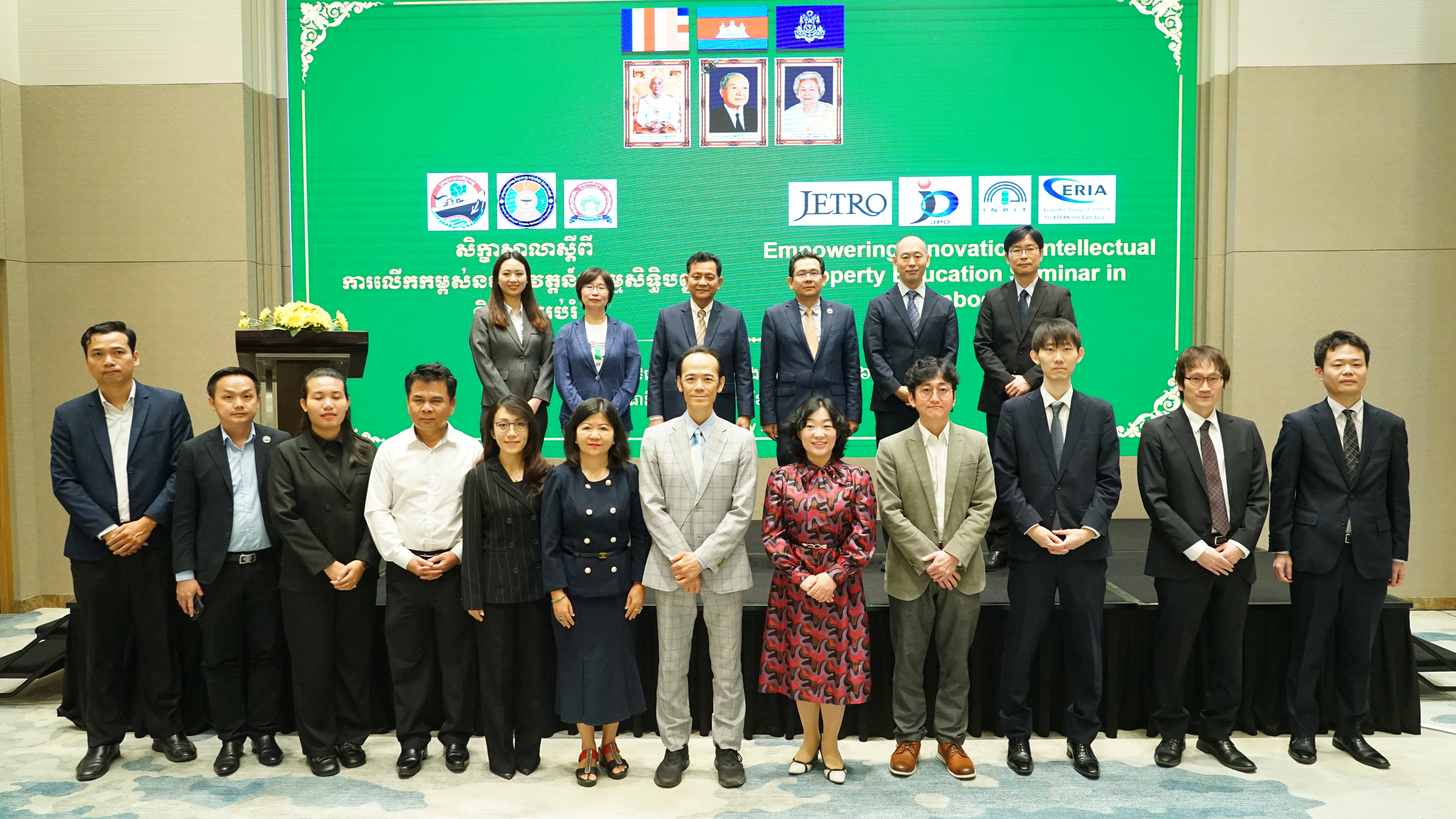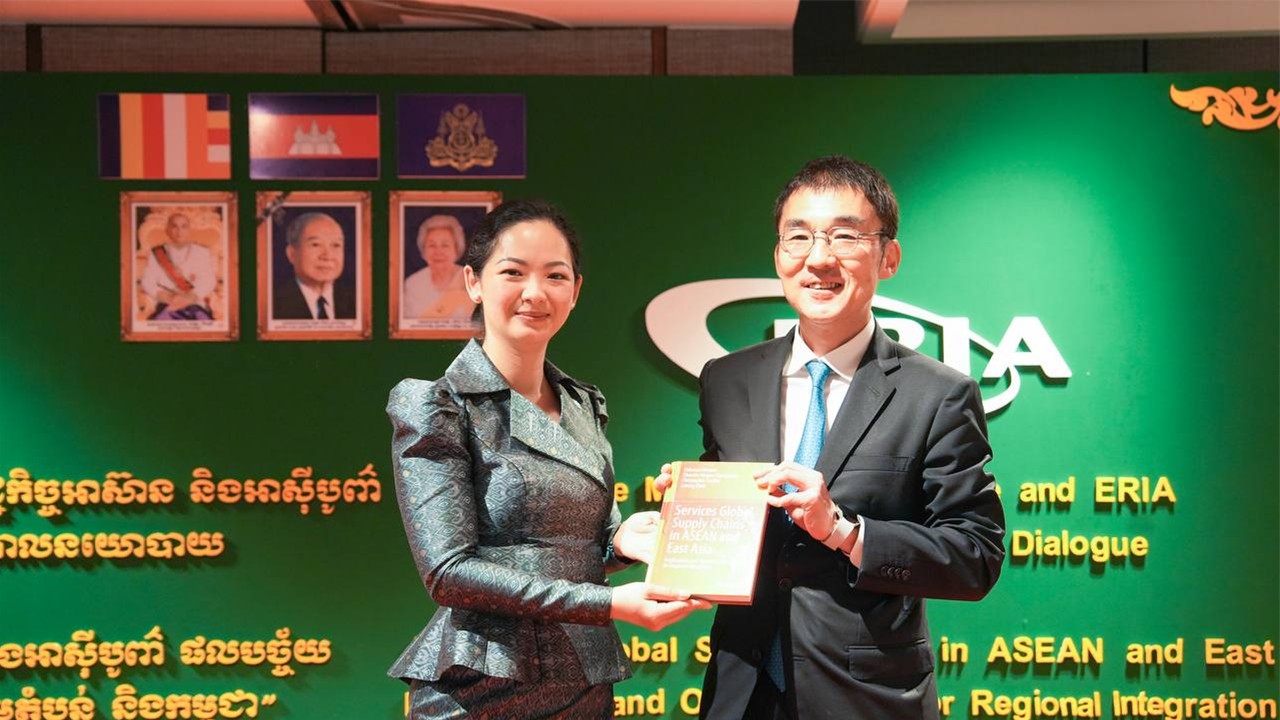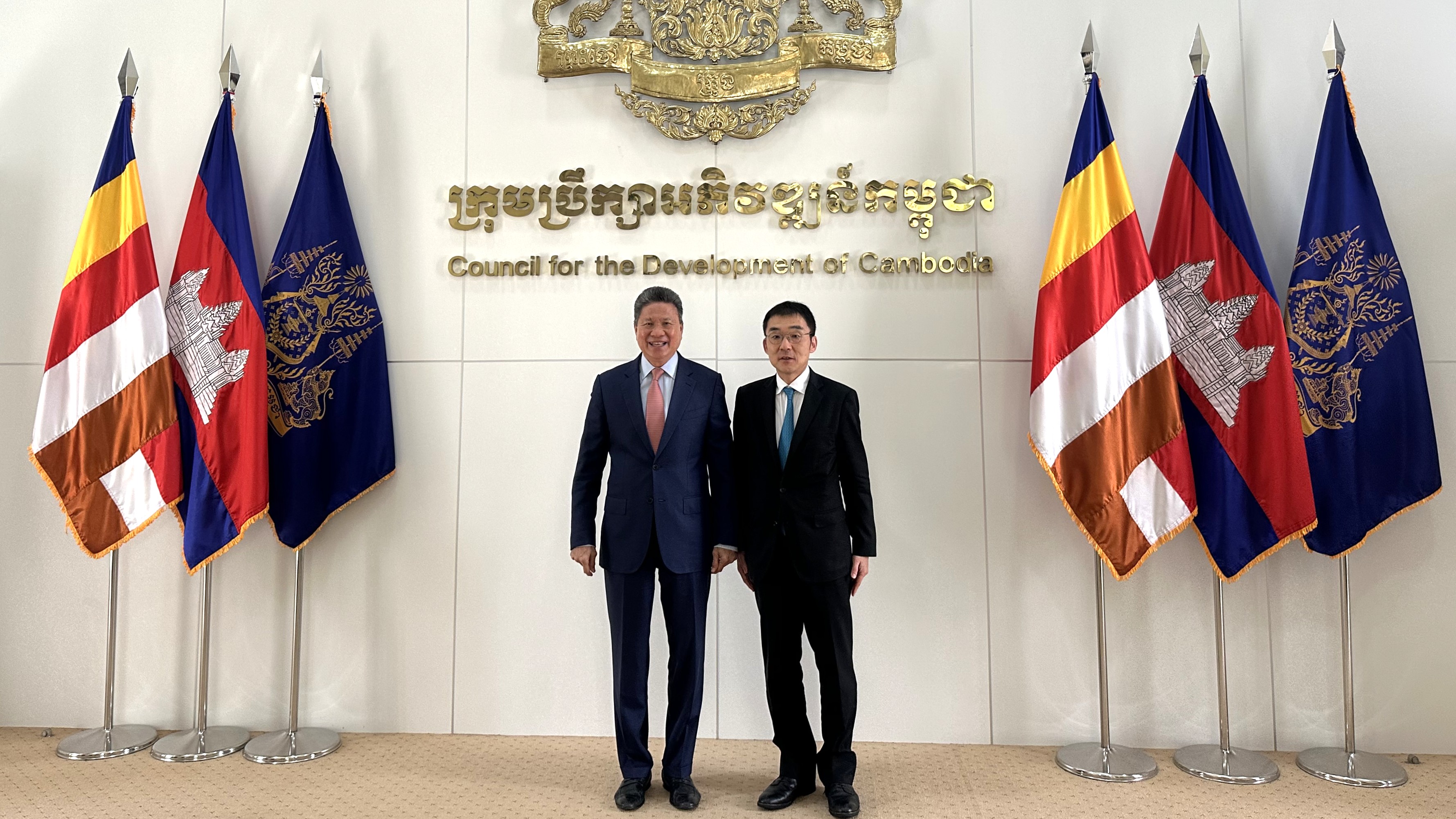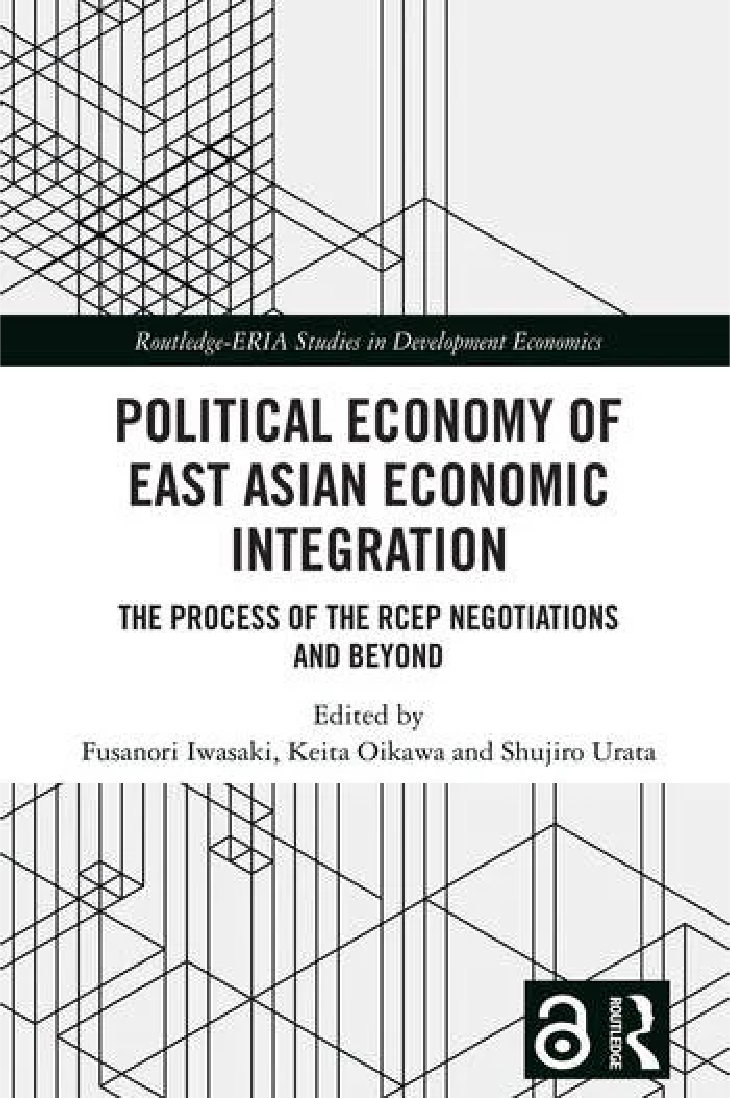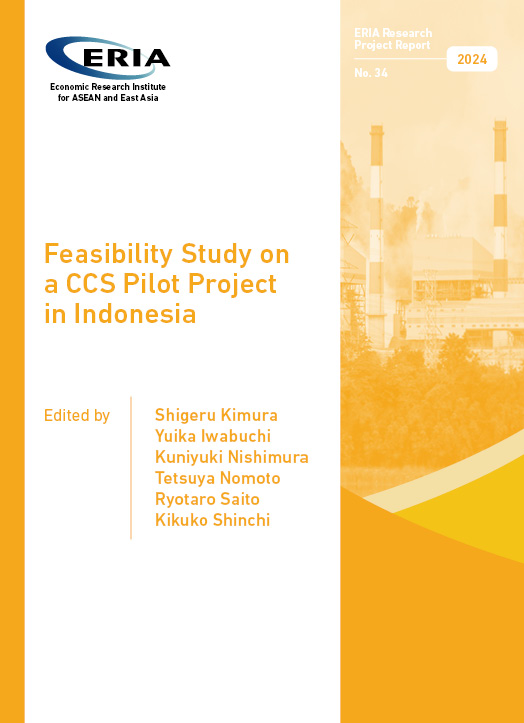ERIA Co-Hosts Seminar on Intellectual Property Systems and Economic Growth in Cambodia
Date:
21 February 2025Category:
NewsTopics:
Cambodia, Intellectual Property RightsShare Article:
Print Article:
Phnom Penh, 21 February 2025: ERIA, in collaboration with the Japan External Trade Organization (JETRO) Bangkok; Japan Patent Office (JPO); National Center for Industrial Property Information and Training of Japan (INPIT); Cambodia’s Ministry of Commerce (MOC); and Ministry of Science, Technology and Innovation (MISTI), hosted the Empowering Innovation: Intellectual Property Education Seminar in Cambodia at the Fairfield by Marriott Hotel. The event brought together 80 participants, including government officials, academics, researchers, and legal experts.
Opening Remarks
Dr Yasuaki Naito, Director of JETRO Bangkok’s Intellectual Property Department, highlighted Japan’s ongoing cooperation with Cambodia in intellectual property (IP), emphasising the role of IP education in fostering innovation, economic growth, and stronger bilateral ties.
Yoshitaka Watanabe, Manager of Legal Policy at ERIA, stressed the importance of capacity building and education in advancing intellectual property rights (IPR). He praised Cambodia’s progress in IPR and underscored INPIT’s role in training patent examiners, reaffirming the seminar’s goal of empowering IP professionals, fostering innovation, and enhancing economic competitiveness.
H.E. Ngeth Vibol, Director General of the General Department of Industry at MISTI, outlined Cambodia’s IP education initiatives and Japan’s key role in supporting their development since 2016. H.E. Suon Vichea – Advisor to the Ministry, Head of the Secretariat of the National Committee for Intellectual Property, and Director of the Department of Intellectual Property at MOC – discussed Cambodia’s Pentagon Strategy Phase 1, which strengthens IP rights through digital trademark registration and public education. He called for integrating IP education into universities and vocational training to drive innovation and economic growth.
Presentations and Discussions
The seminar featured expert presentations on key IP topics:
- Narika Chogo, Administrative Officer of JPO’s International Cooperation Division, provided an Overview of Intellectual Property Rights, discussing how IPR enhances market positioning, boosts innovation, and generates revenue through licensing. She also explored strategic considerations such as patents versus trade secrets and the combined use of patents, designs, and trademarks for stronger market control.
- Prof. Yaji from Seijo University examined The Role of Intellectual Property Systems in Emerging Countries, analysing the economic and technological development of South Korea, Thailand, and Cambodia. He highlighted how the Republic of Korea transitioned from foreign technology reliance to domestic innovation, Thailand leveraged trademarks and government support for growth, and how Cambodia could adopt similar strategies through stronger IP policies.
- H.E. Suon Vichea from MOC spoke on Human Resource Development and Public Awareness of Intellectual Property in Cambodia, highlighting training programmes, legal framework improvements, and collaborations with international bodies such as WIPO. Despite progress, he acknowledged challenges in public awareness and enforcement, stressing the need for further investment in education.
- Tomomi Yoshida, Director of the Department of Human Resources Development and Utilisation at INPIT, outlined INPIT’s initiatives in IP talent development, including specialised training programmes. She introduced J-PlatPat, a global IP information platform offering comprehensive patent, design, and trademark data to strengthen the IP ecosystem in Japan.
- Prof. Hiromi Takaoka, a specially appointed professor at Osaka University, discussed IP’s role in socioeconomic development and the disparities in ASEAN’s IP systems. She identified counterfeit products as a significant challenge in Cambodia and Myanmar, stressing the need for stronger IP education and university-driven IP management.
- Yugo Nagata, a Japan-qualified lawyer and lecturer in Cambodia, provided practical insights into Trademark Registration in Cambodia, explaining legal protections, branding benefits, and the increasing accessibility of IP protection for small businesses through modern tools.
Closing Remarks and Outlook
A lively Q&A session reflected participants’ strong interest in strengthening Cambodia’s IP framework.
In her concluding remarks, Tomomi Yoshida emphasised that the seminar provided valuable insights into Cambodia’s IP outreach and human resource development while offering Japan a fresh perspective on the evolving roles of its IP professionals. Moving forward, Japan will continue expanding the quantity and quality of its IP-related human resources.
As a key organiser, ERIA reaffirms its commitment to promoting IP education and fostering collaboration between Japan and Cambodia, as well as amongst ERIA’s 16 member countries and beyond. Future seminars will continue to support IP development as a critical driver of innovation and competitiveness.
